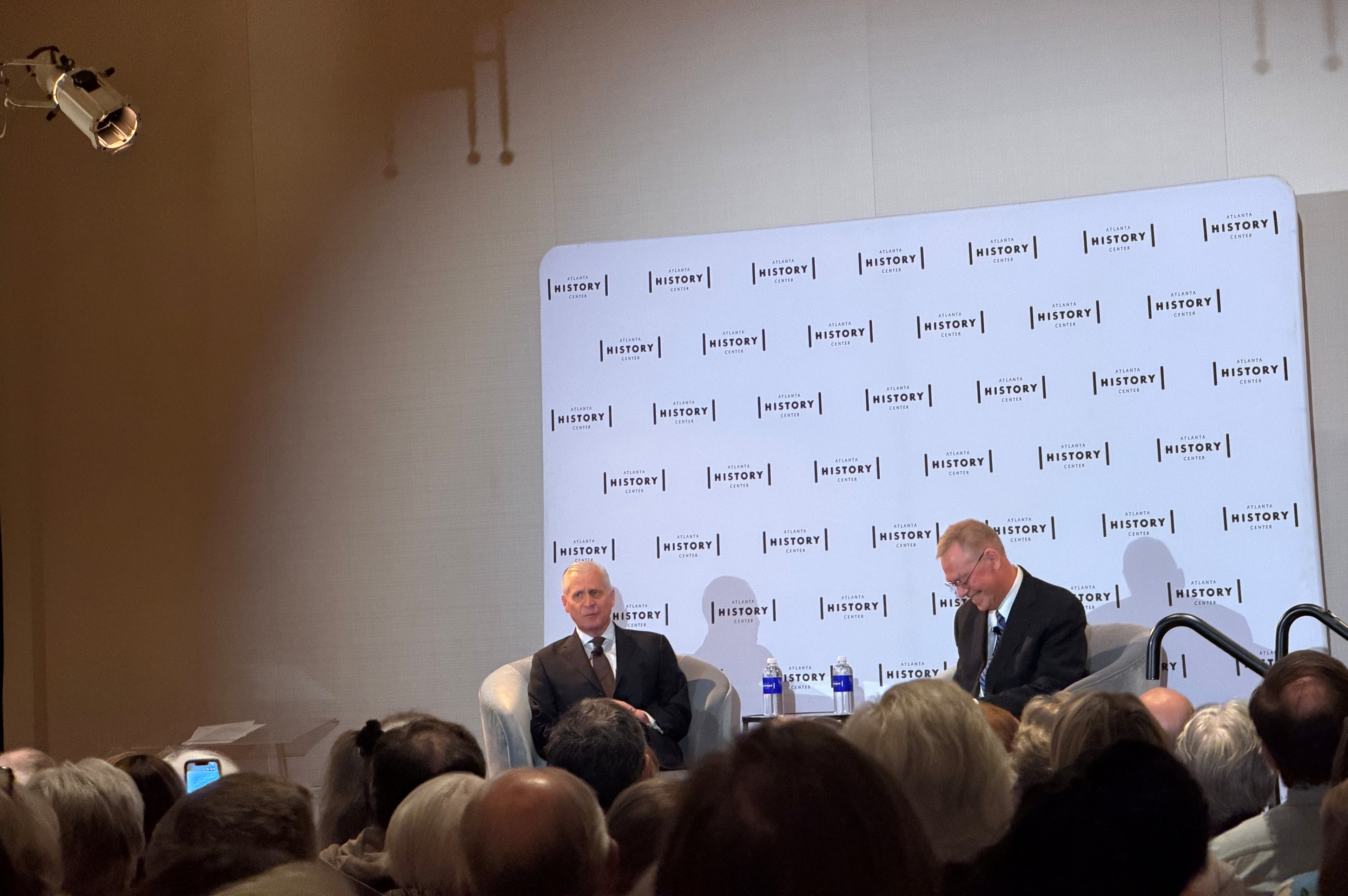Star Wars, Mad Max offer lesson about Roe v. Wade

Emily Matson is an attorney in Rome and executive director of Georgia Life Alliance, an affiliate of National Right to Life.
His name is Jack. For 39 weeks, he lived inside of me. His heart beat inside of me. He was nourished and grew inside of me. His legs kicked and elbows jabbed inside of me. He sucked his thumb and hiccuped inside of me. And early on a Sunday morning in November 2015, he moved out. On that day, he got a name and a “date of birth”. On that day, he became capable of inheriting under Georgia law and gave me a legal duty of supporting him. On that day and at that moment of birth, he entered “life.” At least, I think it was on that day?
At week 21 of Jack’s life inside of me, I was on day two of what would be a three-day jury trial. This was my third pregnancy and my third time trying a jury trial while pregnant. At lunch, I walked the short distance from the courthouse to our law office and sat at my secretary’s desk to read my emails. I noticed a news story trending and clicked a video released by the non-profit Center for Medical Progress. One “Dr. Deborah Nucatola” was depicted cavalierly eating salad, sipping wine, and describing how “[w]e’ve been very good at getting heart, lung, liver because we know that, I’m not going to crush that part.”
Not going to crush that heart, lung, liver? Of what — a frog in a science lab? No. Dr. Nucatola refers to the heart, lung and liver of a human life like Jack’s. I was shocked. Putting aside the debate over whether “procurement costs” are tantamount to “profits,” my shock lay in the reality that this abortion doctor walks freely after she has terminated a human life for a fee (probably hundreds of lives, if not thousands) and then selectively picked apart the physical specimen to fulfill a daily order.
Almost involuntarily, I clenched by growing belly. My mind went to its own dark place: could I still abort my pregnancy lawfully in Georgia? At that time, Georgia’s law restricting abortion after 20 weeks was being challenged in a private lawsuit; the old law still applied allowing abortion through the second trimester. I counted the weeks. Hypothetically, I had at least four more weeks to get a legal abortion. One day I could stand in front of the jury in my maternity dress, emphasizing my pregnant belly for the maximum theatrical effect in the courtroom. The next morning, I could drive to Atlanta and pay $480 and be free of the kicking, hiccups, heartburn, and future cost of diapers. I could be free simply because, as the woman carrying the child, I am free to choose.
I have had this right since I was born. Just seven years prior to my date of birth, our highest Court enshrined my right to end an innocent life inside of me until his or her “viability.” Since 1973, Roe v. Wade has represented freedom for women facing the unique, often uncomfortable and painful consequence of carrying and birthing a child.
In the new Star Wars, we meet the heroine Rey. She is a survivor with very little means and certainly none to spare with others. Yet, she has a sense of value – that someone smaller and helpless might need her protection, even if that means giving up her own sustenance. In the movie Mad Max, Furiosa is a central protagonist. She fights for and risks all to save a group of weak female concubines. But her objective holds a deeper purpose: saving their lives will hopefully mean her own redemption.
Rey and Furiosa act because the weak around them are worthy regardless of each weakling’s value to the surrounding culture or their ability to survive without her. There is something intrinsically human about their experience and the battle each woman faces when innocent life is threatened. Protecting it brings meaning and purpose to these women and their worlds of chaos.
Likewise, there is something intrinsically human about the pregnancy experience. Without any will, my body fought to protect and preserve the life growing inside. It did not reject Jack as parasite, but gave him the best of what my system could offer him in utero. Contrary to popular thought, Jack is not a life because I say he is or because politics has made him so. Jack was a human life inside of me before I exercised any desire for or against him. His DNA, heartbeat, lungs, liver, hiccups and thumb-sucking prove that.
In October, Wired.com ran an article titled “Why Science Can’t Say When a Baby’s Life Begins.” After discussing law and science as to when life begins, the author quotes OB-Gyn Diane Horvath-Cosper, “I’ve come to the conclusion that the pregnant woman gets to decide when it’s a person.” This is the legacy of Roe v. Wade and the jeopardy every tiny life inside of me (and other pregnant women) faces.
What the pregnant woman decides ultimately decides the value of that tiny human life. So we have elevated that decision – whether based on conviction, shame or politics – to receive the highest protection of the law. It’s not about greater purpose or sacredness of human life. It’s about priorities. And so long as our priority is choice – human life cannot take that priority. And Jack and those other tiny, innocent, human lives, hang in the balance.


